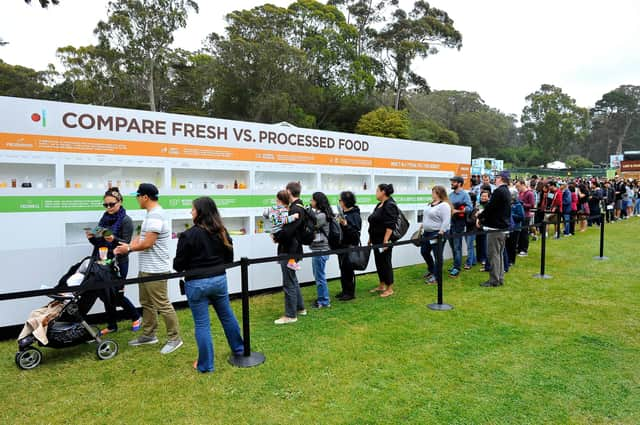Limiting ultra-processed foods can help Scotland stop being one of the most unhealthy countries in Europe – David McKay


So says Henry Dimbleby in his National Food Strategy – the first independent review of the English food system in 75 years.
The co-founder of the Leon restaurant chain has prescribed a wide range of remedies.
Advertisement
Hide AdAdvertisement
Hide AdThese include sugar and salt taxes to curb the impact of processed foods, a reduction in meat consumption and the provision of free fruit and vegetables in deprived areas.
The report also calls for a huge shift in farming and land use, with the widespread take-up of agroecological or nature-friendly practices to address the environmental damage of decades of intensive food production.
The UK government has said it respond with a white paper within six months. But this is a strategy for England – so what does it all mean for us here in Scotland?
In many areas identified in the report, we might already be ahead of the curve.
While the National Food Strategy calls for Westminster to introduce a Good Food Bill by 2024, the Scottish government consulted on a Good Food Nation Bill in the last parliament.
Sidelined due to the Covid-19 pandemic, the legislation is likely to feature in the Programme for Government in September.
And while Dimbleby recommends an overhaul of school food in England, the Scottish government is already working closely with Soil Association Scotland on Food for Life – helping local authorities get fresh, local and sustainable food into school meals in half of all council areas, and counting.
The SNP 2021 manifesto committed to embedding Food for Life in the wider public sector including NHS hospitals and a new National Care Service – pre-empting another recommendation in the National Food Strategy.
Advertisement
Hide AdAdvertisement
Hide AdThese are all positive steps, but there is a long way to go.
Our poor record on health is well documented. Close to a third of those aged 18-64 in Scotland are classed as obese.
The average Scot has a healthy life expectancy – that is the number of years lived in very good or good general health – of 61.7, well below the European average of 68.3.
There is a growing body of evidence linking health problems with the over-consumption of ultra-processed foods (UPFs).
UPFs are everyday food items – from breakfast cereals to supermarket bread, crisps, fizzy drinks, chicken nuggets, and pizzas. The Soil Association has been campaigning for action on this issue and were pleased to see the National Food Strategy highlight the damaging contribution of UPFs.
France has already adopted a percentage reduction target for ultra-processed foods in the national diet – and we would urge the Scottish government to follow suit.
This type of state intervention is risky territory for politicians. But the Covid pandemic may provide the impetus for change in government and among the wider public.
The Good Food Nation Bill can help to normalise healthy and sustainable diets – and it can ensure our public sector is a beacon of good food.
Advertisement
Hide AdAdvertisement
Hide AdThe Scottish government can lead the way on this – and help shake off the ‘sick man of Europe’ tag once and for all.
David McKay is head of policy at Soil Association Scotland
A message from the Editor:
Thank you for reading this article. We're more reliant on your support than ever as the shift in consumer habits brought about by coronavirus impacts our advertisers.
If you haven't already, please consider supporting our trusted, fact-checked journalism by taking out a digital subscription.
Comments
Want to join the conversation? Please or to comment on this article.
